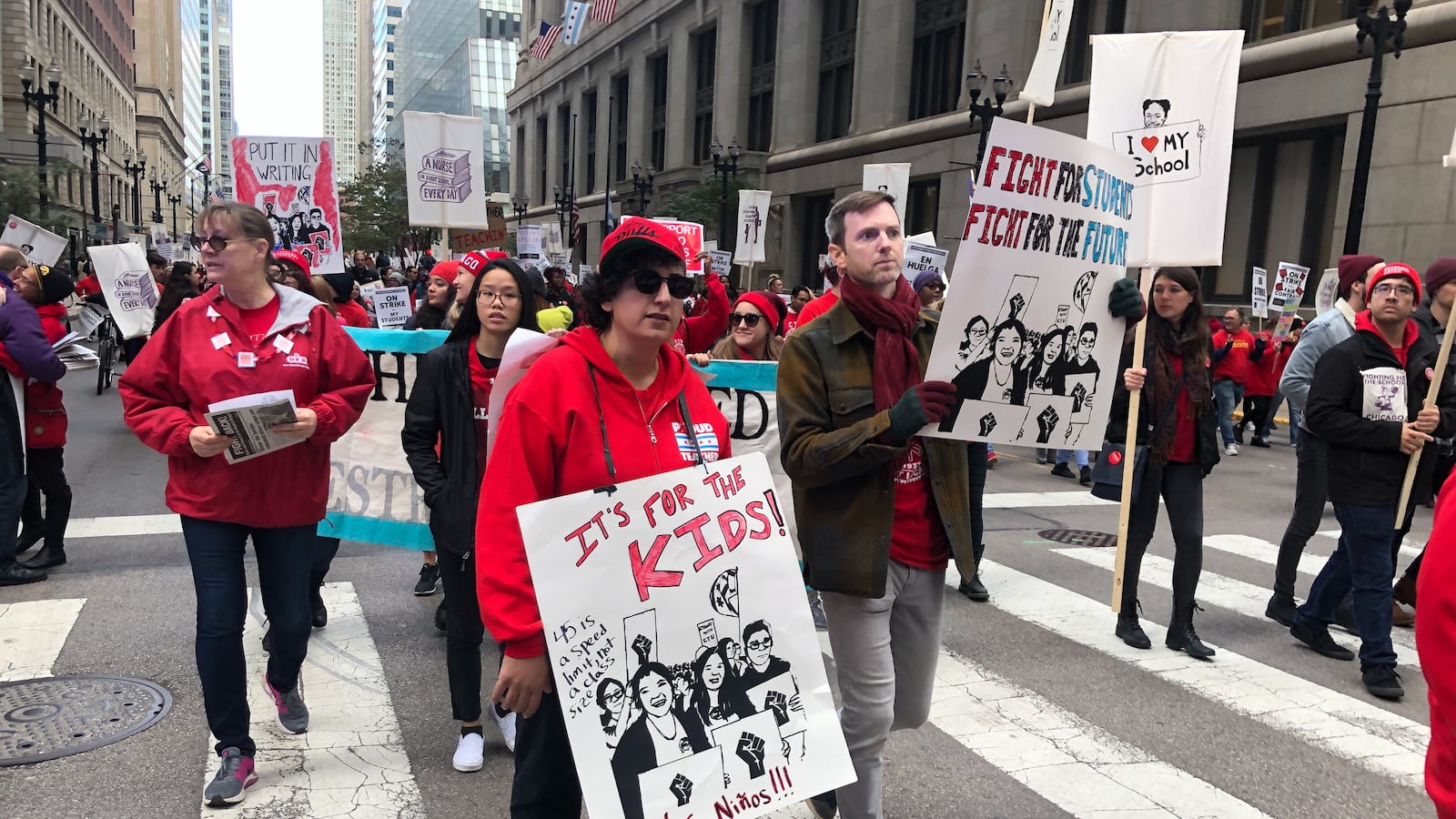SEIU Local 73, the union backing Chicago Public Schools support staff, on Wednesday ratified a five-year contract that includes raises ranging from 17% to 40% over time, in what its president calls a “victory for working people in Chicago.”
While the Chicago Teachers Union continues to strike, however, SEIU is asking its members to honor the picket line “in solidarity” and not return to work until teachers agree to a contract as well. But recognizing the economic pinch some members are feeling, the union pledged it won’t consider workers who do cross the picket line to be scabs, chief negotiator Larry Alcoff said.
After the vote, members expressed enthusiasm for the deal.
“I was elated, because I know for the bus aides who work 30-plus years, this puts them on a path to make more for their families and help themselves progress,” said Jonathan Williams, a special education aide at Wilma Rudolph Learning Center on the Near West Side. “It’s all about progression and empowerment.”
In its ratification announcement Wednesday afternoon, the union credited its negotiators and its partnership with the teachers union as major factors in winning better working conditions and wages for its 7,500 members who work for schools, including bus aides, custodians, special education classroom assistants, and security workers.
Negotiators had reached a tentative deal Sunday.
“The lowest-paid support workers who are the backbone of our schools are going to see raises that mean their families won’t have to struggle as hard living in an expensive city where costs keep going up,” said Dian Palmer, president of SEIU Local 73.
The union contract addresses concerns that led to SEIU’s seven-day strike, which launched alongside the teachers strike now in its 10th day. Besides pay raises, gains include earned sick time, paid vacation, as well as prep time for special education classroom assistants.
Support staff will see wage increases ranging from 17% to nearly 40% by the end of the 2022-23 school year. As the contract is being applied retroactive to July 1, 2018, workers will also receive back pay in line with those raises, the union said.
The contract allows members to accrue up to 40 days of earned sick time and elect to receive some holiday pay. Custodians will receive two weeks of paid vacation, and bus aides will receive six days, both of which were removed during 2015 negotiations. Bus aides will also receive assignments based on seniority and performance evaluations, which the union deemed “equitable and fair.”
Special education classroom assistants, a major focus of negotiations, will have self-directed prep and planning time, and the union also won its fight to better define their job descriptions after members charged they were being used as utility workers for lunchroom and recess monitoring and other duties that took them away from their assigned students.
While the union did not manage to end district custodial contracts with Sodexo and Aramark as its members had hoped, it did get the ability to inspect schools that are reported as being unclean and ensure corrective action is taken.

Over the course of the strike, the low wages of bus aides and other support staff struck a chord. Bus aides like Althea McCaskill earn around $16,000 a year and said they often worked far more hours than they were paid for, because their jobs are paid by the route, not the actual hours worked.
“They tell you to just suffer through it,” McCaskill said last week. “But if anything happens, they throw you under the bus.
“I’ve done this every day, faithfully, for 10 years,” she added. “Why can’t I get paid what I’m worth?”

